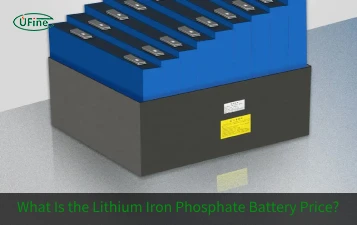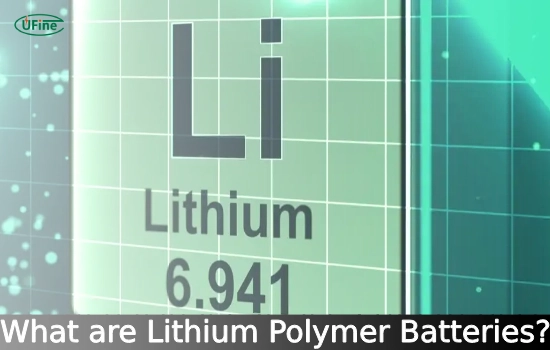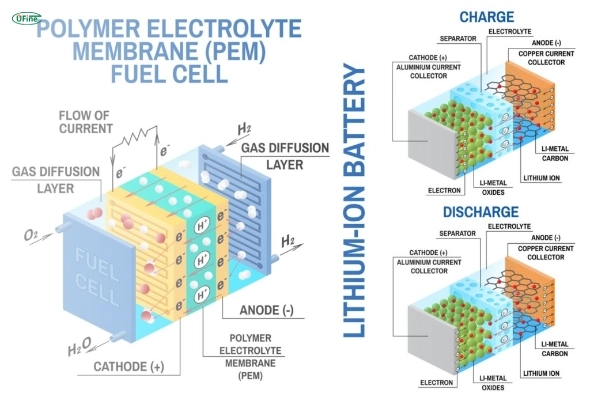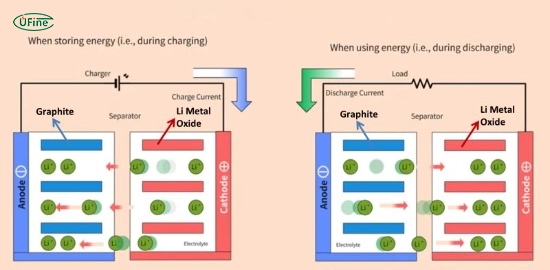
- Key Takeaways
- Part 1. What are lithium polymer batteries?
- Part 2. Lithium battery components explained
- Part 3. How lithium polymer batteries work
- Part 4. Advantages of lithium polymer batteries
- Part 5. Disadvantages and swelling risks
- Part 6. Lithium polymer vs lithium-ion batteries
- Part 7. Applications of lithium polymer batteries
- Part 8. How to choose the right lithium battery for sale
- Part 9. Lithium polymer battery FAQs
Lithium polymer batteries (LiPo) are a type of lithium battery with flexible polymer electrolytes and pouch cells, enabling lightweight, custom-shaped designs. This guide covers how LiPo batteries work, key advantages, common risks like swelling, and tips for selecting the right lithium battery for your needs.
Key Takeaways
- Lithium polymer batteries use a polymer or gel electrolyte and flexible pouch packaging, enabling ultra-thin and custom-shaped designs.
- Compared with cylindrical lithium-ion cells, LiPo batteries offer better form-factor flexibility but require stricter handling and protection.
- Lithium polymer battery swelling is usually caused by overcharging, over-discharging, aging, or mechanical damage.
- Typical cycle life ranges from 300–500 cycles, depending on depth of discharge, temperature, and charging control.
- For B2B buyers, correct selection depends on application voltage, discharge rate, size constraints, safety requirements, and certification needs.
Part 1. What are lithium polymer batteries?
A lithium polymer battery is a rechargeable lithium battery that uses a polymer-based electrolyte instead of a traditional liquid electrolyte. The polymer electrolyte may be solid or gel-like, allowing the battery to be packaged in a lightweight aluminum-plastic pouch rather than a rigid metal casing.
This structural difference gives lithium polymer batteries several defining characteristics:
- Ultra-thin profiles (theoretical minimum thickness around 0.5 mm)
- Flexible shapes and custom dimensions
- Lower overall weight compared with metal-cased lithium-ion cells
Part 2. Lithium battery components explained
Understanding lithium battery components is critical for evaluating performance, safety, and lifespan. Lithium polymer batteries share the same core components as other lithium batteries, with differences mainly in electrolyte and packaging.
1 Battery anode
The anode is the negative electrode, responsible for storing lithium ions during charging.
- Material: Graphite or other carbon-based materials
- Function: Absorbs lithium ions during charging and releases them during discharge
2 Battery cathode
The cathode is the positive electrode and largely determines battery voltage and capacity.
- Common materials: Lithium cobalt oxide (LCO), lithium iron phosphate (LFP), lithium manganese oxide (LMO)
- Function: Hosts lithium ions during discharge
3 Battery electrolyte
In lithium polymer batteries, the electrolyte is a polymer gel or solid-state material that enables ion movement while reducing leakage risk.
- Contains lithium salts
- Provides ionic conductivity between electrodes
4 Battery separator
A porous polymer membrane that prevents direct contact between anode and cathode while allowing lithium ions to pass.
5 Current collectors
- Anode collector: Copper foil
- Cathode collector: Aluminum foil
Part 3. How lithium polymer batteries work
Charging process
During charging, an external power source drives lithium ions from the cathode to the anode through the electrolyte, while electrons flow through the external circuit.
Discharging process
When powering a device, lithium ions move back to the cathode, and electrons flow through the load, generating electrical energy.
Cycle life and efficiency
- Typical cycle life: 300–500 cycles
- Capacity gradually decreases with each cycle
Part 4. Advantages of lithium polymer batteries
- High energy density: Operating voltage of 3.6–3.8V per cell
- Lightweight design: Up to 40% lighter than steel-cased lithium batteries
- No memory effect: Can be charged at any state of charge
- Flexible form factor: Ideal for thin and irregularly shaped devices
- Lower internal resistance: Supports higher discharge rates
Part 5. Disadvantages and swelling risks
Limited lifespan
Compared with some lithium iron phosphate batteries, LiPo cells generally have a shorter cycle life.
Sensitivity to charging conditions
Overcharging or deep discharging can permanently damage the cell and increase safety risks.
Lithium polymer battery swelling
Swelling occurs when internal gas builds up due to electrolyte decomposition. Common causes include:
- Overcharging or poor charger compatibility
- High operating temperatures
- Mechanical puncture or aging
A swollen battery should be removed from service immediately and handled according to safety guidelines such as those published by IEEE and UL.
Part 6. Lithium polymer vs lithium-ion batteries
| Feature | Lithium Polymer | Lithium-Ion |
|---|---|---|
| Packaging | Flexible pouch | Metal casing |
| Shape flexibility | High | Limited |
| Energy density | Moderate–High | High |
| Mechanical robustness | Lower | Higher |
For a deeper comparison, see lithium-ion vs lithium polymer battery.
Part 7. Applications of lithium polymer batteries
- Consumer electronics: smartphones, tablets, wearables
- Medical devices: hearing aids, portable monitors
- Drones and RC hobby equipment
- Industrial and custom embedded systems
- Aerospace and defense electronics
Part 8. How to choose the right lithium battery for sale
- Define voltage and capacity requirements
- Evaluate discharge rate (C-rating)
- Confirm size, thickness, and weight limits
- Check protection circuitry and certifications
- Consider supplier customization capability
For OEM and industrial buyers, working directly with manufacturers such as Ufine Battery allows for custom cell design, low MOQ, and application-specific optimization.
Ufine Battery provides custom lithium polymer battery design and manufacturing, with capabilities for ultra-thin, flexible, and high-performance cells tailored to your specific application requirements.
Find A Solution NowPart 9. Lithium polymer battery FAQs
Are lithium polymer batteries rechargeable?
Yes. LiPo batteries are fully rechargeable using a proper CC/CV charger. Correct voltage and chemistry are essential for safety and long cycle life.
Can I use a lithium-ion charger for a lithium polymer battery?
Not recommended. Li-ion chargers may differ in current control and protection limits, risking overheating or LiPo swelling.
How long do lithium polymer batteries last?
Typical lifespan is 300–500 full cycles. Actual life depends on discharge depth, temperature, charging current, and battery management.
What causes lithium polymer battery swelling?
Swelling results from overcharging, over-discharging, heat, aging, or damage. It indicates chemical degradation and the battery should be removed immediately.
Are lithium polymer batteries environmentally friendly?
LiPo batteries contain metals that are harmful if improperly disposed. They should be recycled via approved lithium battery recycling programs.
Related Tags:
More Articles

LiFePO4 Battery Price in 2026: Cost per kWh, per kg & Real Examples
Discover LiFePO4 battery prices in 2026, from cost per kWh to per kg. Learn how to save money while getting long-lasting, safe lithium batteries.
NMC Battery Explained: Pros, Cons, Lifespan, and Safety
Learn how NMC batteries work, their real specifications, NMC 811 vs LFP differences, lifespan limits, and when NMC is the right choice for you.
Understanding Deep Cycle Battery Size Options
Learn deep cycle battery sizes, BCI group standards, capacity matching, battery types, and key questions for RV, marine, solar, and backup power systems.
Why You Need a Lithium Battery Heater for Cold Weather Performance and Longevity
Learn how heated lithium batteries and lithium battery heaters ensure safe charging, reliable performance, and longer lifespan in cold climates.
Top 10 3.7V 18650 Battery Recommendations
Top 10 3.7V 18650 battery recommendations with specs, comparisons, applications, and tips to choose the right 18650 rechargeable battery.





